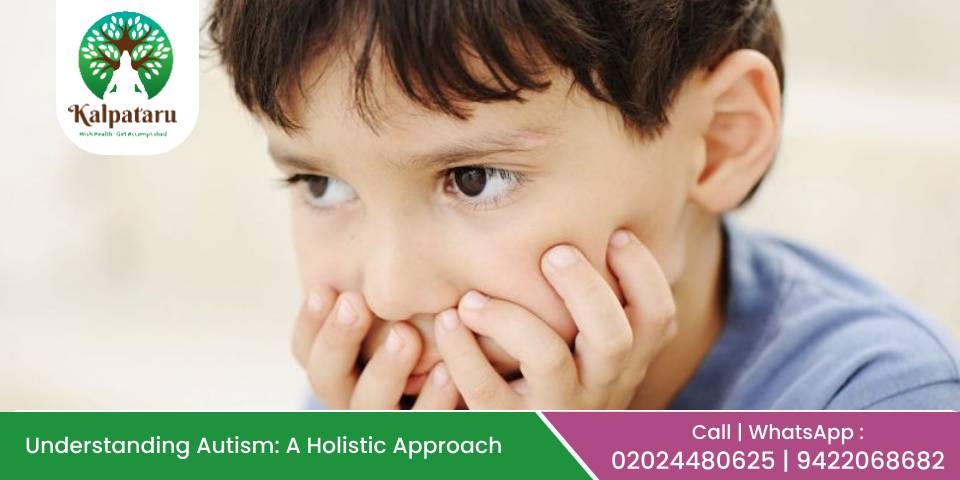Autism, a neurodevelopmental disorder, manifests in various ways, impacting social interaction, communication, and behavior. As we delve into understanding autism, it’s essential to explore its prevalence, seriousness, and potential treatments, including Ayurvedic approaches.
What is Autism?
Global Statistics:
- Prevalence: According to the World Health Organization (WHO), autism affects an estimated 1 in 160 children worldwide. However, recent studies suggest that the prevalence may be higher, with some reports indicating rates as high as 1 in 54 children in certain populations.
- Gender Disparities: Autism is diagnosed more frequently in boys than girls, with boys being approximately four times more likely to be diagnosed with ASD than girls. This gender disparity remains consistent across various regions globally.
India Statistics:
- Estimated Prevalence: Studies suggest a prevalence of around 1 in 68 children in India. However, there’s wide variation in estimates depending on the region.
Early Signs and Importance of Early Intervention:
The Seriousness of Autism:
Concept of Autism in Ayurveda:
In Ayurveda, autism is understood as a disturbance in the balance of doshas (bioenergies) affecting the mind-body complex. While classical Ayurvedic texts may not directly mention autism, the principles of Ayurveda emphasize the interconnectedness of physical, mental, and emotional health.
According to Ayurvedic philosophy, imbalances in the doshas, particularly Vata dosha, which governs movement and communication, can contribute to neurological and behavioral issues observed in autism. Ayurvedic approaches to autism focus on restoring balance and harmony through personalized diet, lifestyle modifications, herbal remedies, and therapeutic treatments aimed at caring the nervous system and enhancing overall well-being.
Ayurvedic Treatment for Autism:
Various Ayurvedic medications like ghee-based preparations such as Kumar Kalyan Ghrita, Brahmi Ghrita, etc., are used because ghee can aid in the absorption of nutrients and deliver medicines effectively to the brain. Additionally, herbs like Jatamansi, Shankhpushpi, Jyotishmati, Brahmi, etc., are also used. Some precious medicines like Abhrak Bhasma (made from mica), Suvarna Bhasma (gold), and Raupya Bhasma (silver), are reserved for severe cases.
Diet and lifestyle are crucial because what we eat affects our brain and overall health. This is particularly important during pregnancy when avoiding stress, getting proper rest, having a balanced diet, maintaining mental peace, practicing yoga, meditation, music, or any other calming activity can reduce the risk of autism in future generations.
Let’s delve into the details of some key Ayurvedic treatments commonly used in the management of autism:
- Shirodhara: Shirodhara involves a continuous stream of warm, medicated oil poured over the forehead in a rhythmic manner. This soothing therapy helps calm the mind, reduce stress, and promote relaxation. In individuals with autism, Shirodhara can aid in improving focus, reducing anxiety, and enhancing sensory integration.
- Shiropichu: Shiropichu is a therapeutic procedure where medicated oil is applied to the scalp using a cotton pad or cloth. In autism, Shiropichu can contribute to improving cognitive function, reducing hyperactivity, and enhancing overall well-being.
- Shirolep: Shirolep involves the application of a herbal paste or pack on the scalp. In individuals with autism, Shirolep may aid in calming the mind, improving concentration, and boosting sensory sensitivities.
- Nasya: Nasya involves the administration of medicated oils or herbal preparations through the nasal passage. In autism, Nasya therapy can support cognitive function, enhance sensory processing, and alleviate symptoms related to congestion or allergies.
- Sarvang Abhyanga: Sarvang Abhyanga, or full-body massage, is a deeply relaxing and therapeutic practice in Ayurveda. In individuals with autism, Sarvang Abhyanga can help reduce muscle tension, improve sleep quality, and enhance overall sensory integration.
- Basti: Basti involves the administration of medicated enemas to cleanse and nourish the colon. In autism, Basti therapy can support gastrointestinal health, regulate bowel function, and promote overall detoxification and rejuvenation.
For more information and treatment modalities watch our informative video
Benefits of Ayurvedic Treatments for Autism:
- Reduces anxiety and stress
- Improves focus and attention span
- Enhances sensory integration
- Supports cognitive function and learning
- Reduces hyperactivity and impulsivity
- Promotes relaxation and better sleep quality
Conclusion:
Autism is a complex neurodevelopmental disorder that requires a holistic approach to understanding and management. Through awareness of its prevalence, recognition of early signs, and timely intervention, we can better support individuals and families affected by autism. Ayurveda offers valuable insights and therapeutic options, focusing on restoring balance and promoting overall well-being.
Dr. Manoj Deshpande and Dr. Aparna Deshpande at Kalpataru Ayurvediya Chikitsalaya™ Clinic provide the best Ayurvedic Treatment for Psoriasis & various diseases in Pune, Maharashtra. For more information about our comprehensive treatment options, or to request an appointment with the best Ayurvedic Doctor in Pune, call +919422068682 / +919764837167/ 020-24480625 or Click on Book an Appointment.

